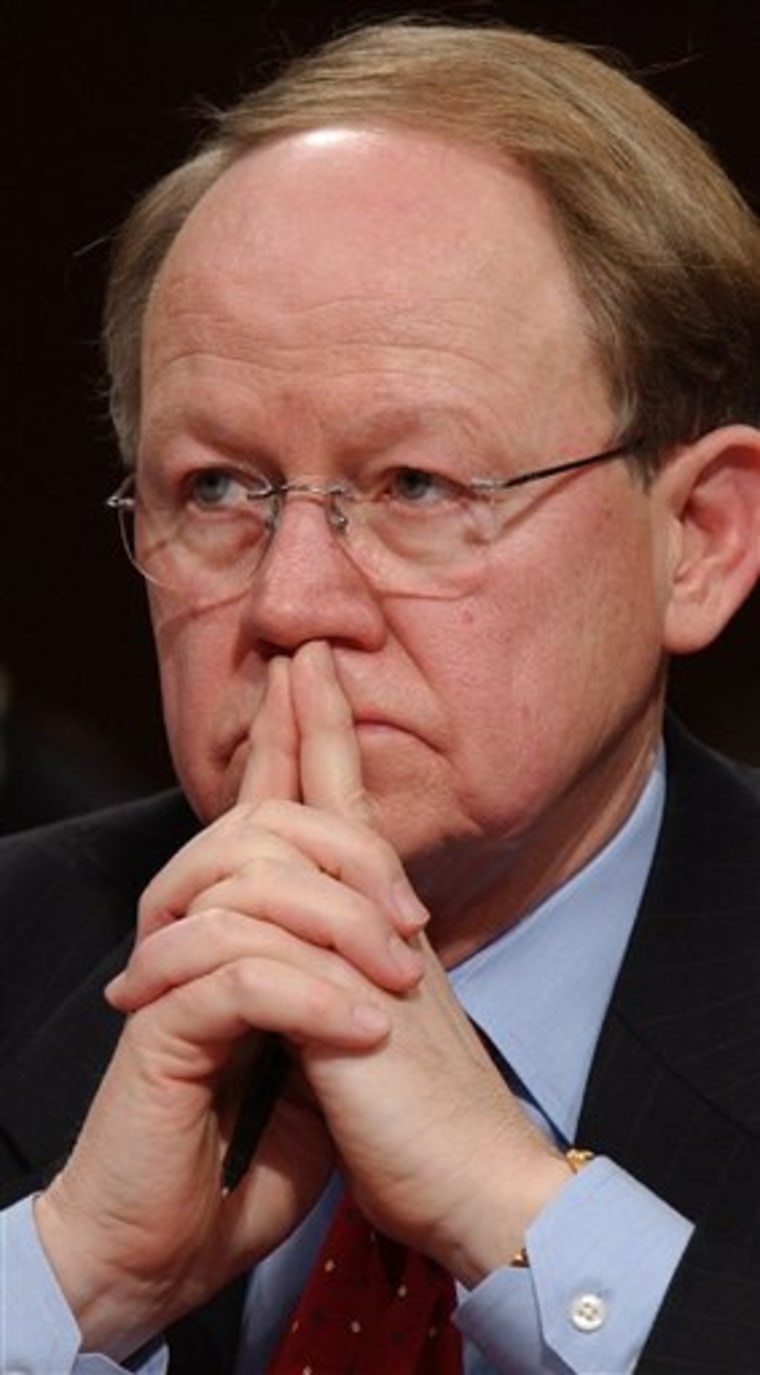The top U.S. intelligence official asked Congress Tuesday for even more changes to a law that he says has limited the government's ability to eavesdrop - not just on terrorists but also on more traditional potential adversaries.
Mike McConnell, the director of national intelligence, said China and Russia are aggressively spying on sensitive U.S. facilities, intelligence systems and development projects, and their efforts are approaching Cold War levels.
"Foreign intelligence information concerning the plans, activities and intentions of foreign powers and their agents is critical to protect the nation and preserve our security," McConnell told the House Judiciary Committee.
Privacy versus intelligence gap
McConnell is seeking changes to the Protect America Act, which Congressed passed to effectively supersede or modify the Foreign Intelligence Surveilliance Act - a law that administration officials have said tied their hands in combating terrorism.
Congress hastily adopted the successor law - the Protect America Act - just before going on vacation in August. They took that action based in part on McConnell's warnings of a dire gap in U.S. intelligence. Some senior Democrats were hesitant, however.
"The right to privacy is too important to be sacrificed in a last-minute rush before a congressional recess, which is what happened," said Rep. John Conyers, D-Mich., the panel's chairman, said Tuesday.
Democrats worry that the law could open business records, library files, personal mail, and homes to searches by intelligence and law enforcement officers without a court order.
'Myth and facts'
Bush administration officials say that is an overly broad, even strained reading of the law, which they contend only allows the government to target foreigners for surveillance without a warrant. The law also allows the government to listen in on calls and e-mails that have an American on one end of the communication without a warrant as long as the American is not the intended "target" of the surveillance.
Addressing the controversy over the law, the Justice Department and the White House Tuesday issued a "myth and facts" paper meant to allay the concerns of civil liberties advocates and privacy groups that believe it gives the government broader powers than intended.
Rep. Jerrold Nadler, D-NY, the chairman of the subcommittee on the Constitution, Civil Rights and Civil Liberties, called the effort a troubling "charm offensive."
"Let's have some truth in advertising, the act gives the president almost unfettered power to spy, without judicial approval, not only on foreigners but on Americans," Nadler said.
The new law eased some of the restrictions on government eavesdropping contained in the decades-old Foreign Intelligence Surveillance Act, to let the government more efficiently intercept foreign calls and e-mails.
The Protect America Act allows the government to eavesdrop, without a court order, on all communications conducted by a person reasonably believed to be outside the United States, even if an American is on one end of the conversation provided the American is not the intended focus or target of the surveillance.
Such surveillance was generally prohibited under the original Foreign Intelligence Surveillance Act without a court order and is one of the more controversial aspects of the new law.
While many Democrats angle to roll back what they consider the excesses of the new law, McConnell and Assistant Attorney General Kenneth L. Wainstein are pushing Congress to make even more changes.
